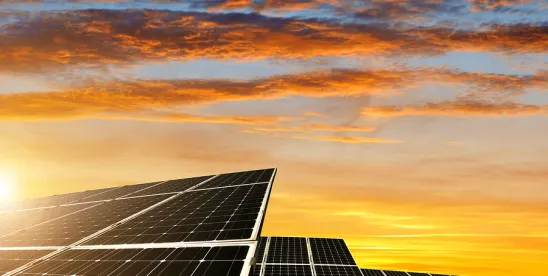One outgrowth of the ever-increasing focus on climate change and the touted benefits of renewable energy in America today has been the rise of solar energy businesses marketing and selling solar panel systems to residential homeowners. Confronted with increased costs of electricity, these homeowners may, for the first time during their home ownership, view solar panels as an investment worth considering. But a growing number of homeowners have made these investments only to encounter problems. Accordingly, homeowners should be aware of potential pitfalls and do their homework before signing up to purchase a solar panel system.
Typically, the transaction involves an entity that sells the solar panel system, retains a contractor to install the system, and often arranges for financing of the purchase. The purchase price for the system depends on factors including the quality of the panels (most are manufactured overseas) and the size of the house, but can exceed $25,000. As part of their marketing and sales efforts, solar entities usually tell homeowners that purchasing a system will substantially lower their electric bills, they will receive tax credits, and the system may pay for itself in a comparatively short time. In other words, they seek to give homeowners the clear impression that the transaction involves little risk. Homeowners then proceed to sign documents, almost always without legal assistance, because “what could go wrong?”
Unfortunately, plenty can go wrong, such as these common pitfalls:
- Homeowners sign agreements that are voluminous, hard to read and understand, and limit a homeowner’s rights and remedies. Included are a purchase and installation agreement, a loan agreement, and a warranty that contains exclusions and disclaimers.
- Installing solar panels involves penetrating existing roofs, so a defective installation can cause roof leaks, interior water damage, and eventually, mold. The installation itself may void the manufacturer’s warranty on the roofing materials.
- In addition, even a properly installed system may not operate as promised, generating less electricity than the threshold amounts specified in the warranty.
- Homeowners have encountered significant customer service issues, up to and including failure to address warranty claims .. Sometimes, too, the relationships between the seller of the system, the lender, and the installer are almost too confusing for the homeowner to figure out.
- In worst case scenarios, the solar entity may have filed for bankruptcy protection or even gone out of business.
To illustrate and expand on these pitfalls, on Aug. 7, 2024, the federal Consumer Financial Protection Bureau (CFPB) issued a consumer advisory along with a report to help people avoid problems identified with solar energy loans, as follows:
- Hidden Markups and Fees
Typically, homeowners expect solar energy equipment to be sold at a fair price. The CFPB, however, has found that sellers might inflate the cost by adding so-called dealer fees to the loan. The dealer fees are rarely shown to the customer, though they increase the total amount of the loan, and they make the interest rate on the loan look artificially low.
- Actual Amount of Loans
High-pressure sales pitches tout new tax credits. Some salespeople subtract a projected tax credit from the amount of the loan and show that lower amount to the homeowner to close the sale. This means the price presented seems lower than the total borrowed.
- Increases in Loan Payments
The monthly payment increases after 18 months unless a payment matching the amount of the projected tax credit is made, regardless of whether the tax credit is received.
- Inflated Energy savings
Solar energy sales pitches often claim the programs and equipment pay for themselves through lower energy bills or tax benefits, but the exact savings are unpredictable. Sometimes, payments for upkeep and repairs in addition to high loan payments must be made. When cost savings or other benefits are promised but not delivered, the homeowner is stuck with a solar energy system that costs more than anticipated.
Accordingly, avoiding these pitfalls, or managing them if they occur, is critical. Some suggestions for homeowners before moving forward with a purchase:
- Before signing an agreements, check the background of the solar panel system seller and installer, including any customer reviews and complaints filed with organizations such as the Better Business Bureau. Further, before signing, engage an attorney to review the documents. The legal fees spent upfront will pale in comparison to what may need to be spent later if problems arise; and
- Ask questions about the relationship between the solar panel system and the seller.
In a nutshell, homeowners should, as noted above, do their homework.
Homeowners who have already purchased a solar system and are encountering difficulties can take actions such as filing complaints with consumer protection bureaus. Unfortunately, however, these may not result in the recovery of damages, and the homeowner is left to try to negotiate a settlement with both the solar panel system seller and the lender, or to pursue a resolution via arbitration or litigation.




 />i
/>i

